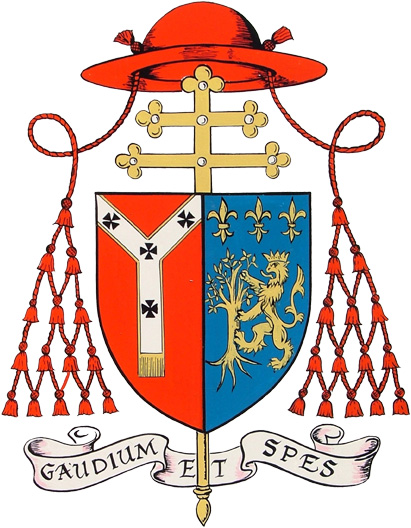by Mgr Mark Langham
There are two incidents in the earlier life of Cardinal Cormac that awakened his interest in ecumenism: the first was meeting his local Anglican clergy in his parish in Portsmouth Diocese and finding out that they were rather pleasant, and the second was reading the document on ecumenism from Vatican II, Unitatis Redintegratio. These events stirred in him a sense of a greater Christian identity,
a common calling, that he would later characterise with the technical term koinonia – communion. Indeed, for Cardinal Cormac, ecumenism was a natural part of being a Catholic, a recognition indeed that so long as Christians were divided, the Catholic Church itself lacked something.
Two further events were to confirm him in his opinion. As Bishop of Arundel and Brighton, he welcomed Pope John Paul II to England in 1982 and witnessed him praying with the Archbishop of Canterbury, Robert Runcie, at Canterbury Cathedral. The sight moved him to tears, and convinced him of the need to work tirelessly for unity. The second was his appointment as co-Chairman of the Anglican-Roman Catholic International Commission (ARCIC), where he gained first-hand experience of the theological issues at stake. In this capacity, he underlined the real achievements of the dialogue: he called ARCIC’s agreements on Eucharist and Ministry ‘money in the bank’. Yet he was also realistic about the difficulties in the way to greater unity, notably the ordination of women as priests and (perceptively) the wider issue of authority.
If sober about the prospects for any early ecumenical breakthrough, he was untiringly optimistic about the ecumenical journey, which he called ‘a road with no exit’. He maintained personally warm relations with members of other Christian communities, and as Cardinal arranged plenary meetings between Catholic and Church of England Bishops. As rector of the English College in Rome he had hosted the Archbishop of Canterbury, Donald Coggan, and established an exchange programme whereby Anglican ordinands spent a semester at the College, an initiative still alive, and one which has had untold benefits in increasing knowledge and collaboration between Catholic and Anglican clergy. But above all, Cardinal Cormac felt that ecumenism was something that ordinary Christians had to do, and indeed, faced with a secularising world, had to do. ‘In every town, in every village, everywhere, there ought to be some things that Christians are doing together’, he said in 2012. For him, the enemies of ecumenism were suspicion, inertia and impatience, and his conviction of the role of the Holy Spirit, combined with his generous and affable character, did as much as any theological discussion to further the path of Christian unity, and establish the real but imperfect communion shared by Christians.




